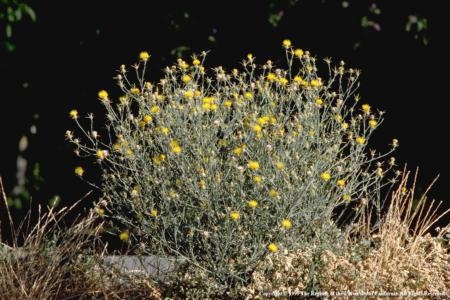Collaboration may be an effective way to fund wildland weed control
Many funding sources for weed eradication have been reduced or completely eliminated. According to the California Assembly Budget Committee’s annual Preliminary Review of the Governor’s Proposed 2012-13 State Budget, the California Department of Food and Agriculture will absorb a permanent budget reduction of $12 million in program cuts, in addition to a $19 million budget reduction in 2011-12. Funding for weed management areas (WMAs) has been reduced to the point that many WMAs have become inactive or are being managed voluntarily as an adjunct to other duties.
At the California Invasive Plant Council (Cal-IPC: http://www.cal-ipc.org/) annual symposium at Lake Tahoe in October, it was stressed that competition for limited funding will pit us against ourselves and each other. Only by working together, creating collaborative projects, will we be able to benefit from the limited funding opportunities available.
Enter the collaborative grant-funded project. Agencies are looking for applications that demonstrate community support from a diverse range of stakeholders. For example, the Sierra Nevada Conservancy (SNC) is currently reviewing proposals received in response to their Healthy Forests initiative. Proposition 84 — The Safe Drinking Water, Water Quality and Supply, Flood Control, River and Coastal Protection Bond Act of 2006 — will fund approved projects. Five million dollars is available this year for healthy forest projects; next year an equal amount will be available for rangeland projects.
Two weed control projects created by UC Cooperative Extension Central Sierra received SNC invitations to submit complete grant applications. One project is a collaboration between UCCE, the U.S. Forest Service, and Yosemite National Park; another works in partnership with Cal-IPC.
As an example of the collaborative partnerships being sought by funding agencies, the National Fish and Wildlife Foundation is offering the ‘Pulling Together Initiative’ which “seeks proposals that will help control invasive plant species, mostly through the work of public/private partnerships such as Cooperative Weed Management Areas.” Successful projects must “have a project Steering Committee composed of local cooperators who are committed to working together to manage invasive and noxious plants across their jurisdictional boundaries.”
Clearly, in light of decreased federal and state funding, a strategic direction for weed-control projects will be to leverage resources, working together to do what no one agency can accomplish alone.
Two additional collaborative projects, created by Wendy West of UCCE Central Sierra, are highlighted here:
- A Weed-Free Forage List providing California resources for weed-free feed and erosion control materials will soon be posted on Cal-IPC’s website. The site will also contain explanatory information about weed-free certification, along with links to inspection procedures and noxious weed lists.
- Workshops designed to help prevent the spread of weeds during construction, aggregate production and maintenance activities are being offered throughout the state. The workshop is hosted and sponsored by U.S. Forest Service, National Park Service, California Department of Food and Agriculture, University of California and University of Nevada Cooperative Extension, and the California Invasive Plant Council.
A Fresno County workshop was held in January and a sold-out workshop is scheduled for March in Los Angeles County. If you are located in the central California region that includes Amador, Calaveras, El Dorado, Madera, Mariposa, San Joaquin, Stanislaus or Tuolumne counties, please consider attending the next workshop, scheduled for April 9 in Sonora. The final workshop will be held in Truckee on May 2. Register for the workshops here.
Prevention Workshop 2012 flier
Workshop Schedule.Agenda

